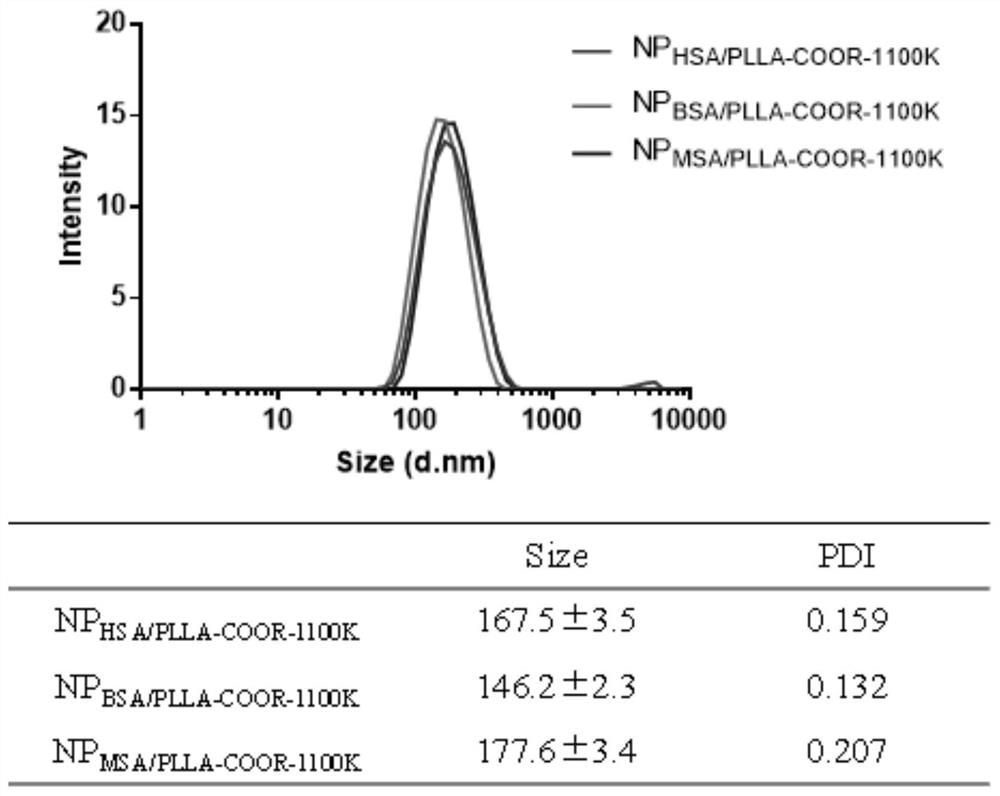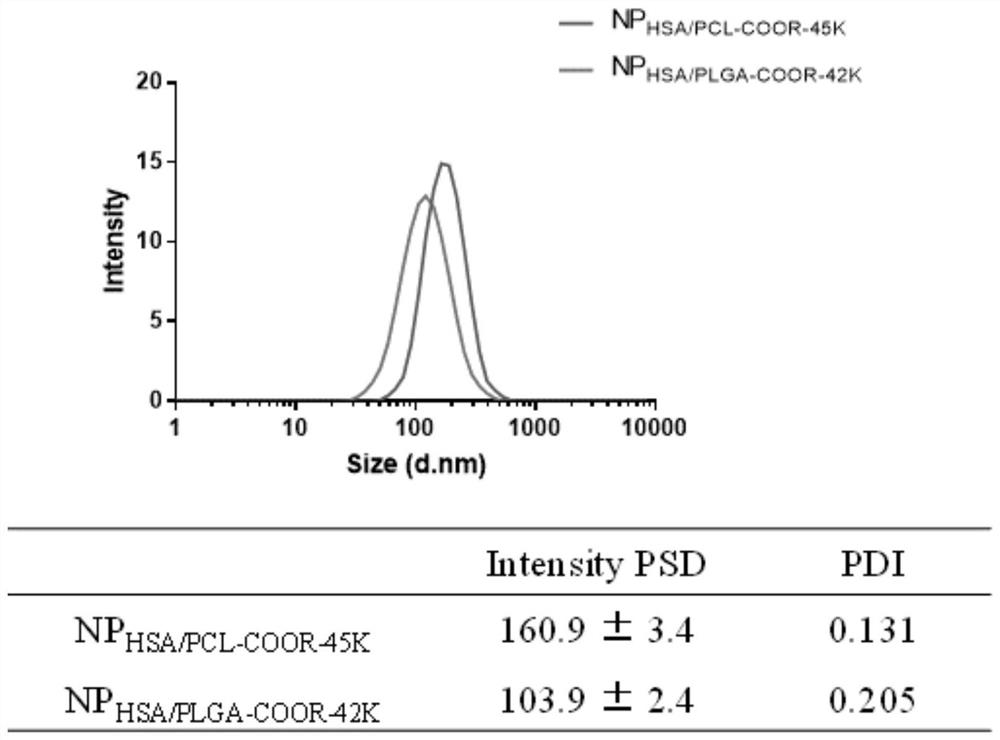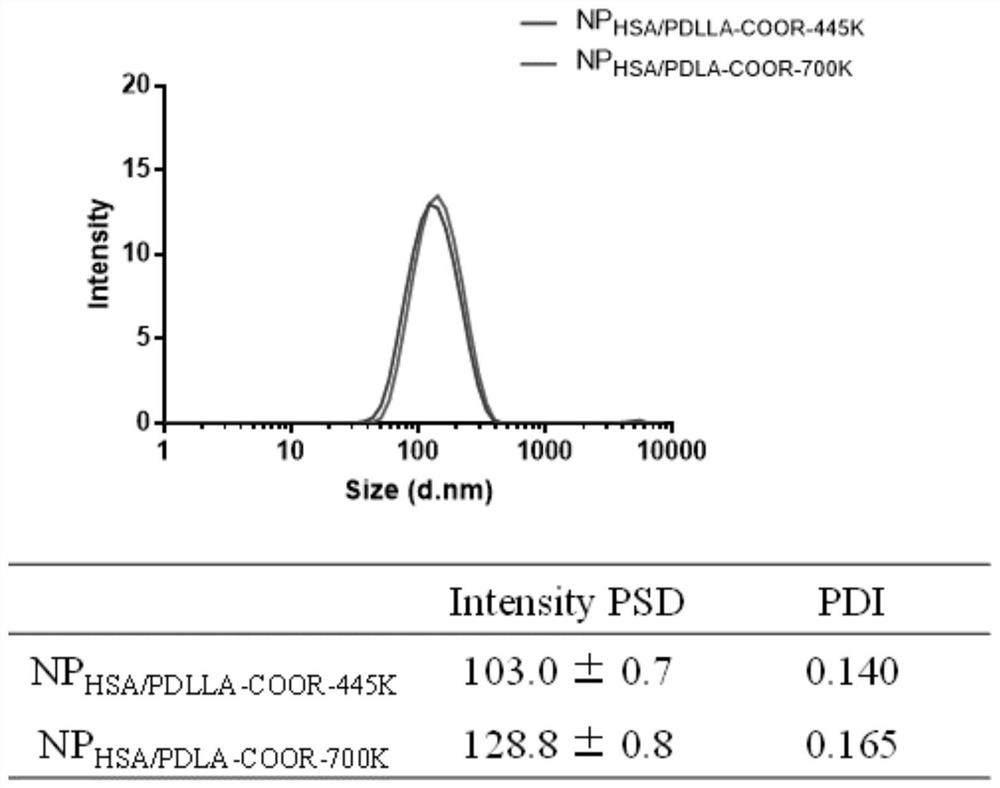Protein-based nanoparticles for delivery of multispecific antibodies and their applications and preparation methods
A multi-specific antibody and nanoparticle technology, applied in the field of medicine, to achieve the effect of enhanced therapeutic effect, excellent stability, and huge clinical application potential
- Summary
- Abstract
- Description
- Claims
- Application Information
AI Technical Summary
Problems solved by technology
Method used
Image
Examples
preparation example Construction
[0067] This embodiment also provides a method for preparing the above-mentioned protein-type nanoparticles, comprising the following steps:
[0068] (1) mixing the protein with water or an aqueous solution to obtain a water phase; mixing the polyester with an organic solvent to obtain an oil phase;
[0069] (2) preparing the water phase and the oil phase described in step (1) into an oil-in-water emulsion;
[0070] (3) Separating and purifying the emulsion to obtain protein nanoparticles.
[0071] In some of these embodiments, in step (1), the mass volume concentration of the protein in the aqueous phase is 5-20 mg / mL.
[0072] In some embodiments, in step (1), the concentration of the polyester in the oil phase is 1-10 mg / ml.
[0073] In some of these embodiments, in step (1), the organic solvent is at least one of chloroform, dichloromethane and ethyl acetate. More specifically, when the molecular weight of the polymer is small (7200-137000 Daltons), the mixed system of e...
Embodiment 1
[0127] Embodiment 1, preparation of albumin aliphatic polyester nanoparticles
[0128] Prepare a chloroform solution of ester-capped L-polylactide (PLLA-COOR-1100K) at a concentration of 5 mg / mL, dissolve 10 mg of human serum albumin in 1 mL of 0.9% sodium chloride aqueous solution, and prepare 1% (w / v) human serum albumin solution, take 200 μL of ester-capped L-polylactide chloroform solution in a 15mL centrifuge tube, add 1mL of 1% (w / v) human serum albumin solution, and use an ultrasonic cell disruptor Emulsification: Ultrasonic power is 130W, amplitude is 50%, ultrasonic 5s stop 2s, the total ultrasonic time is 2min, after the ultrasonic is finished, the emulsion is washed out of the centrifuge tube with ultrapure water, transferred to a 250mL round bottom flask, using a rotary evaporator, According to the order of vacuum degree of 300 / 120 / 70 / 40mbar, the chloroform was kept for 5 minutes to remove, and the albumin aliphatic polyester nanoparticles were collected after rot...
Embodiment 2
[0130] Embodiment 2, purification method of albumin aliphatic polyester nanoparticles
[0131] Method 1 (centrifugation method): Take the granule 1 obtained in Example 1, and use a desktop microrefrigerated centrifuge to centrifuge at low speed (3000rpm, 4°C) for 10min to remove unassembled water-insoluble polyester, and transfer the supernatant to a new The EP tube was centrifuged at high speed (15000rpm, 4°C) for 60 minutes to separate free albumin and nanoparticles, and the free albumin in the supernatant was removed, and the lower pellet was resuspended in 1×PBS for later use.
[0132] Method 2 (dialysis method): Take the granule 1 obtained in Example 1, and use a dialysis bag (Shanghai Green Bird) with a molecular weight cut-off of 14000 Da for dialysis. The dialysate is 1×PBS. Replace them all, and take the albumin aliphatic polyester nanoparticles in the dialysis bag for later use.
PUM
| Property | Measurement | Unit |
|---|---|---|
| molecular weight | aaaaa | aaaaa |
| particle size | aaaaa | aaaaa |
| molecular weight | aaaaa | aaaaa |
Abstract
Description
Claims
Application Information
 Login to View More
Login to View More - R&D
- Intellectual Property
- Life Sciences
- Materials
- Tech Scout
- Unparalleled Data Quality
- Higher Quality Content
- 60% Fewer Hallucinations
Browse by: Latest US Patents, China's latest patents, Technical Efficacy Thesaurus, Application Domain, Technology Topic, Popular Technical Reports.
© 2025 PatSnap. All rights reserved.Legal|Privacy policy|Modern Slavery Act Transparency Statement|Sitemap|About US| Contact US: help@patsnap.com



